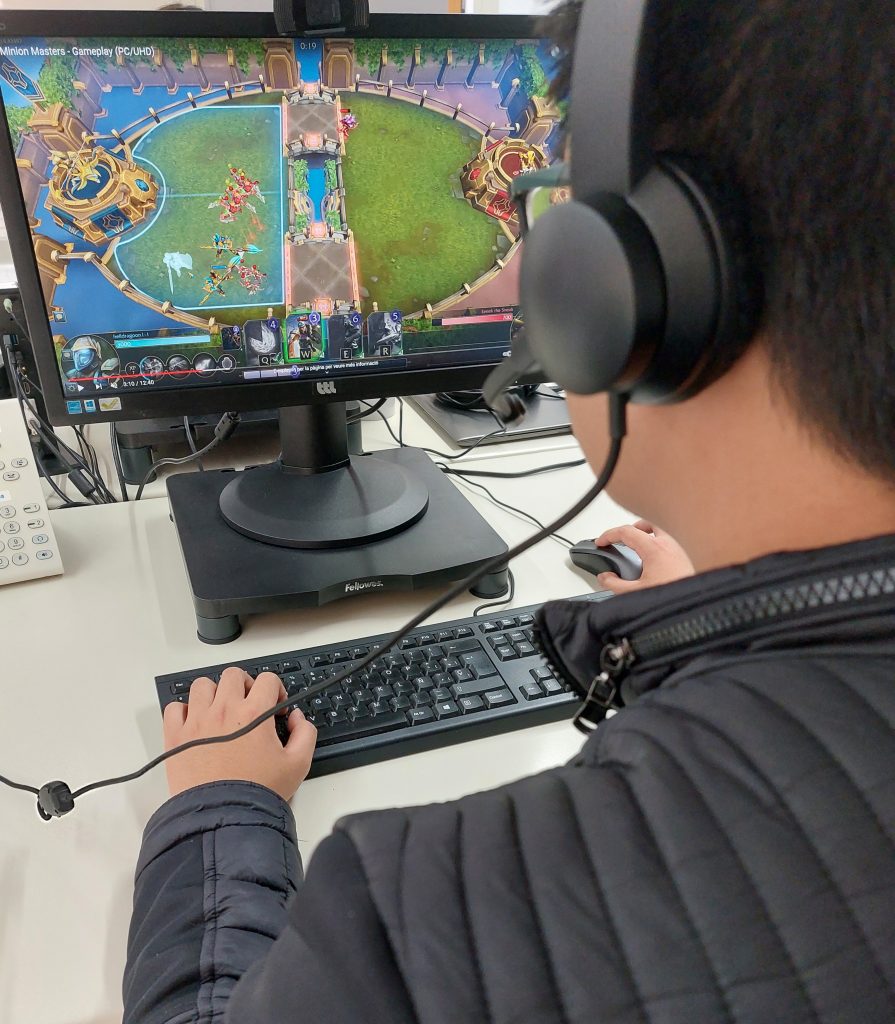Press notes 09/03/2023
A European project led by the URV validates video games as teaching tools in doctoral training
Video Games for Skills Training (VERSA) shows that students have better interdisciplinary skills and are more prepared for the world of work if they play commercial video games

Video Games for Skills Training (VERSA) shows that students have better interdisciplinary skills and are more prepared for the world of work if they play commercial video games
Commercial video games have proved to be a valid tool for improving interdisciplinary skills in doctoral studies. The European project Video games for Skills training (VERSA), led by the Universitat Rovira i Virgili, has successfully completed two years of tests and training modules, which have shown a general improvement in the so-called soft skills of doctoral students who undergo video game sessions.
VERSA, which arose out of studies published in scientific journals demonstrating that games can be used to improve these skills, has been coordinated by the Doctoral School of the Universitat Rovira i Virgili, with Josep Ribalta Vives as principal investigator, the collaboration of two more universities in the Aurora network – the University of Innsbruck and the Vrije Universiteit Amsterdam – and the participation of the Fundación Iberoamericana del Conocimiento GECON (the Ibero-American Knowledge Foundation).
“The video game is being used as an agent for developing soft skills, which is important not only from an academic and innovative point of view in formal education, but also from the point of view of the direct impact on the employability of students, because it generates more capable workers for the European working environment,” explains Adrián Baeza, project manager at the URV’s Doctoral School.
About 160 doctoral students from the three universities have taken part in the two-year project. After answering an initial questionnaire about their skills and those they were interested in developing, a personalized training itinerary was created for them with selected video games so that they could improve in particular areas.
All participants took part in at least three training modules on each of the soft skills, which have considerable professional value: creativity, critical thinking, complex problem solving, cognitive flexibility, managing people and teams, time management, decision making and goal setting. They spent a minimum of twelve hours per module playing each of the video games selected and their progress in the chosen skill was monitored automatically to check if they improved.
The games used to improve each of the interdisciplinary skills were Portal 2 for creativity, Cities: Skylines for critical thinking, Anomaly 2 for complex problem solving, Train Valley for cognitive flexibility, Fallout Shelter for managing people and teams, Minion Masters for time management, Gems of War for decision making and Alien Swarm: Reactive Drop for goal setting.
According to the project coordinators, the results obtained are very favourable. On the one hand, the quantitative data show a generalized improvement in the perception of interdisciplinary skill levels, which means that the vast majority of students see that the training has a significant positive impact on the development of these skills. On the other hand, the qualitative data show that the students and other actors involved in the VERSA project are extremely satisfied. They value very positively both the role of the game as a leisure component of the training, and the connections generated between universities by the programme.
From now on, therefore, video games will be one of the teaching tools on doctoral programmes since, as Adrián Baeza says, “these results show the effectiveness of a training programme adjusted to the needs of the student body, which will improve the skills they need as professionals, which are much in demand. So, they will be much better prepared for the international market in both academic and industrial environments.” Therefore, universities will benefit not only from having a fun and valid innovation programme in a scenario in which training in interdisciplinary skills is scarce, but also from enhancing professional connections between faculties and universities in the European environment.
The project has received funding from the Science with and for Society call of the Horizon 2020 Programme of the European Union.
